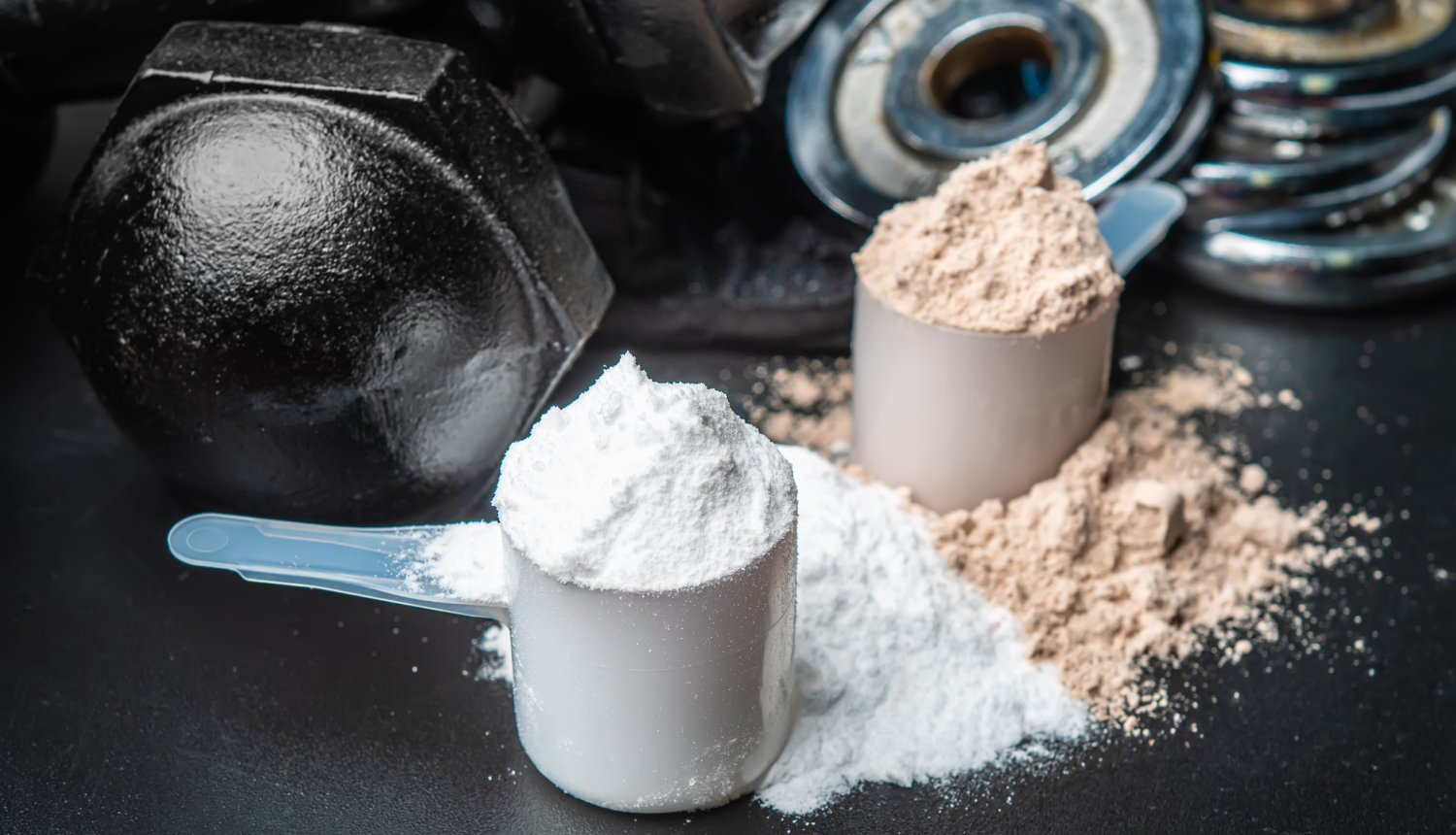
by Matt Weik, BS, CSCS, CPT, CSN
Creatine is the most researched supplement in sports nutrition. It’s been proven to enhance strength, power, and muscle mass. We’ve even seen how creatine monohydrate can help improve brain health and cognition.
That all being said, the biggest draw for creatine is for those who hit the gym and want to build muscle and strength. But is the 5g maintenance dose really enough to get the results we are all looking for?
New research suggests that a daily dose higher than 5g may be needed to maximize lean body mass (LBM) gains. While 5g may be good when you’re first starting, it may not be enough once you start adding more and more size.
A study published in Nutrients explored this concept. The results challenge the long-held belief that standard doses (maintenance doses) of creatine monohydrate (CrM) are sufficient when paired with resistance training. Scientists from the University of New South Wales, along with experts from the U.S. and Canada, conducted the research.
In this article, we are going to dive deeper and look at creatine doses and the new research to see if we all should be taking more creatine daily.
Disclaimer: This article is for informational purposes only and is not meant to treat or diagnose any condition. It is recommended that you speak with your doctor before starting any exercise program, making changes to your nutrition plan, or adding any new supplements into your current regimen.
Understanding the Newest Creatine Research Findings
The researchers from the study noted that creatine supplementation increases lean body mass, but the extent of these gains may depend on the dose that you take.
Dr. Darren Candow, Director of the Aging Muscle and Bone Health Laboratory at the University of Regina and a co-author of the study, emphasized that context is crucial. He pointed out that while low-dose creatine didn’t significantly enhance lean body mass gains in their study.
That being said, it doesn’t mean creatine itself is ineffective and that you shouldn’t bother taking it.
Meta-analyses of multiple studies suggest creatine supplementation leads to an average lean body mass increase of about 1.3 kilograms. However, Dr. Candow cautioned that lean body mass isn’t just muscle — it also includes water, organs, and other tissues as well.
So, does creatine actually build muscle? According to Dr. Candow, it likely does, but the increases are relatively modest. That said, creatine provides numerous other benefits, including improvements in strength, bone health, and cognitive function.
The Benefits of Creatine Monohydrate Supplementation
Creatine monohydrate is widely accepted as one of the safest and most effective supplements for athletic performance. The International Society of Sports Nutrition (ISSN) supports its use for boosting training capacity and enhancing lean mass.
On a biochemical level, creatine works by increasing phosphocreatine (PCr) stores in muscle. PCr helps generate ATP, the body’s primary energy source. During intense exercise, ATP is rapidly depleted, leading to muscular fatigue.
Supplementing with creatine helps maintain ATP levels, improves performance, and allows for more training volume.
Studies have shown that creatine supplementation can increase high-intensity exercise capacity. It also supports lean muscle growth, particularly when combined with a structured training program.
How Much Creatine Do You Really Need?
The standard dosing protocol for creatine includes an initial loading phase of around 20g per day for about a week, followed by a maintenance dose of 5g daily.
However, the latest research that was published suggests this maintenance dose might not be enough to truly maximize muscle growth. Some experts believe a higher daily dose is needed, particularly for those looking to optimize muscle growth over an extended period of time.
Creatine uptake involves sodium-dependent transporters, which can lead to water retention in some individuals. While this effect is temporary, it can influence lean body mass measurements in short-term studies.
Does New Creatine Research Mean You Should Take More?
The study tested whether a seven-day creatine wash-in phase (without training) would significantly impact lean body mass measurements. Researchers also wanted to see how this affected gains after a 12-week resistance training program.
A total of 63 healthy adults (ages 18-50) participated. They were randomly assigned to either a creatine group (5g daily) or a placebo group. The first week involved no training (wash-in phase), followed by 12 weeks of resistance training, with both groups training three times per week.
After the seven-day wash-in, the creatine group gained up to 1.79 kilograms more lean body mass than the placebo group. However, once the training phase started, both groups gained around 2 kilograms of lean body mass, with no significant differences between them.
Interestingly, sex-based analysis showed that only females in the creatine group experienced greater muscle growth than their placebo counterparts (up to 1.61 kilograms).
The researchers suggested that creatine’s effects on lean body mass may be short-term, influencing initial gains but not necessarily long-term muscle growth.
More Creatine = More Gains?
This new study suggests that while creatine increases muscle growth in the short term, its long-term effects may depend on the dosage. A maintenance dose of 5g per day might not be sufficient for maximizing lean mass gains, especially for serious lifters looking to push their muscle growth potential limits.
More research is needed to determine optimal dosing strategies and how factors like hydration and diet influence creatine’s effectiveness.










